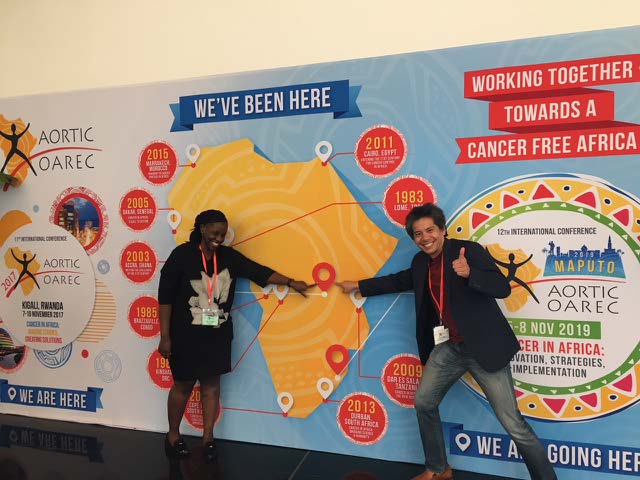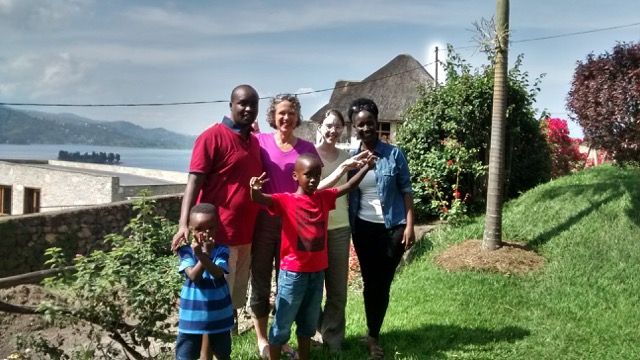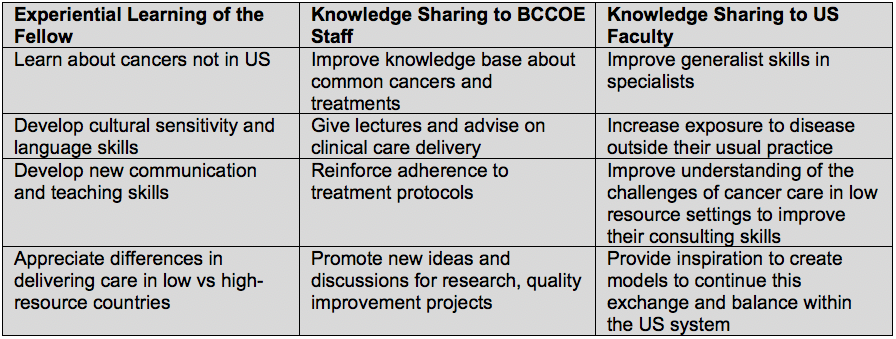For the past two years, fellows from the Dartmouth-Hitchcock Hematology-Oncology Fellowship Program have been engaged in a global oncology fellowship elective in Rwanda. The project was implemented in collaboration with the Rwandan Ministry of Health, the NGO Partners in Health, and the Butaro Hospital Cancer Center of Excellence in Butaro, Rwanda, and supervised by Geisel faculty. The goal of the program was to take advantage of a global oncology education opportunity that would allow for an exchange of knowledge and an increase in scholarly collaborations in order to meet the rising demand for cancer care in low- and middle-income countries. More than half of cancer diagnoses are made in developing countries, and the mortality rate is far higher than it is in developed countries.

Erik Lansigan, MD (right), a key faculty member of the program along with Dr. Tom Davis (not photographed) and Dr. Catherine Kigonya (left), internist at BCCOE, and current applicant for the DHMC Hematology-Oncology Fellowship program to start July 2019, at the AORTIC (African Organization of Research Training in Cancer) meeting in Kigali, Rwanda November 2017.We’re happy to report that the two-year pilot program was 100% enrolled, and achieved its objectives of providing a multi-directional educational exchange with our colleagues in Rwanda. Ten educational, research and organizational projects were implemented. Three grant proposals are in process and 50% of participating fellows plan to pursue careers in Global Health.

The elective was mutually beneficial in that young oncologists in training gained perspective on building cancer care in a low- and middle-income country through exposure to a wider spectrum of disease states and presentations, as well as confidence in teaching and an improvement in communication skills and cultural sensitivity. Staff at the Butaro Hospital cancer center gained highly valued knowledge and mentorship, ideas for quality improvement, and increased expertise with treatment protocol. Future directions for this program include formal curriculum development geared toward the creation and modification of guidelines and protocols that can be adapted to meet the needs of fluctuating resource levels, and a sustainable training system for all levels of professionals including fellows, physicians, nurses, community health workers, laboratory technicians and pharmacists.
By piloting this project, we found that a global oncology fellowship elective can be successful in impacting the quality of care in developing countries and at the same time have a lasting effect on fellows’ career choices and professional growth. Above all, ongoing partnerships like this one complement the all-important task-sharing approach to quality cancer care.
This study was presented as a poster at ASCO Annual Meeting June 4, 2018 and published in the Journal of Global Oncology.
Multi-directional Learning Paradigm:

